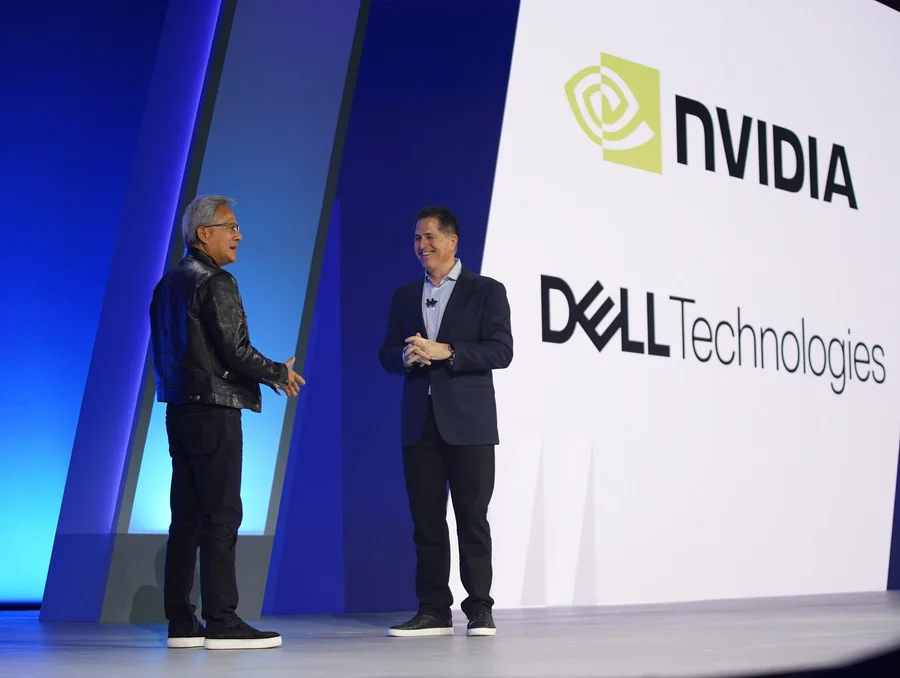As technology continues to evolve at a breakneck pace, businesses are grappling with an increasingly intricate digital landscape. In response, digital transformation has become a top priority, with organizations focusing heavily on artificial intelligence (AI), cloud computing, and data analytics. While these technologies offer immense potential to drive innovation and maintain a competitive edge, companies face the challenge of integrating them seamlessly and efficiently.
With the demand for enhanced digital capabilities rising, Oscar Acts Magazine explores how business technology is moving towards unified, integrated platforms. We take a closer look at key players such as SAP Business Technology Platform (BTP) and Dell’s AI Factory, both of which are designed to scale and adapt to meet modern enterprise challenges.
The Shift Towards Platform-Based Models
Businesses are moving away from traditional, linear, product-centric models and increasingly adopting platform-based approaches. Rather than focusing solely on creating and selling products, many organizations now aim to foster broader interactions between multiple stakeholders.
As the adoption of AI and other advanced technologies surges, so too does the software necessary to manage them. Unified technology platforms are emerging as the solution, enabling companies to reduce time-to-market while quickly deploying new applications.
According to Statista, global IT spending is expected to grow by 8% from 2023 to 2024, reaching an estimated $5 trillion, with IT services alone projected to hit $1.6 trillion by the end of 2024. This highlights the growing importance of centralised platforms in accelerating innovation, particularly in areas like AI and cloud computing.
In the face of a rapidly evolving digital ecosystem, unified technology strategies are becoming essential. With emerging technologies like generative AI (Gen AI) gaining momentum, these integrated platforms can help businesses adopt innovations faster and strengthen their resilience.
“Infrastructure and platforms must be defined as consistently as possible because complexity is the enemy of productivity,” says Arash Ghazanfari, UK CTO at Dell Technologies. “Simplifying architectural diversity and eliminating operational silos allows IT teams to focus on delivering value-added services rather than managing fragmented, cumbersome systems.”
Selecting the Right Technology Platform
Choosing the ideal technology platform is critical for business success. Companies must assess their current needs, evaluate scalability, and align these factors with their strategic goals. This approach ensures that the chosen platform can effectively address specific challenges while also supporting future growth.
By identifying trends and needs within their workforce, businesses can make more informed decisions, driving better strategic planning. Georgia Tangalakie, SAP’s Head of Business Technology Platform for the UK & Ireland, notes that data-driven planning is key to enhancing customer experiences. “By integrating product data, customer feedback, and marketing insights, businesses can tailor services to meet customer needs.”
Security remains a top priority, especially as cyber threats continue to evolve. Organizations must ensure that their platforms adhere to strict security standards to maintain customer trust and protect sensitive data. Robust, unified platforms can streamline operations, foster collaboration, and help businesses respond swiftly to market changes, positioning them for long-term success.
SAP BTP: A Future-Ready Platform
SAP Business Technology Platform (BTP) offers a comprehensive, cloud-based suite of tools that allow businesses to extend and integrate applications with ease. It provides flexibility by enabling companies to select the services they need without sacrificing compatibility.
According to Tangalakie, “SAP BTP simplifies access to the latest technologies, making it more cost-effective for most businesses to use a managed platform rather than handling numerous disparate applications in-house.” The platform can also scale to accommodate growing workloads without requiring additional hardware investments.
At its core, SAP BTP takes a data-centric approach, ensuring that critical business data is available in a unified, meaningful context across different applications. “The data fabric approach captures all business data, maintaining its relevance and sharing it across various business functions,” Tangalakie explains. This unified system not only supports innovation but also helps businesses unlock insights that are otherwise difficult to obtain using siloed applications.
Dell AI Factory: Driving AI and Cloud Integration
As businesses increasingly turn to AI to drive innovation, Dell Technologies has introduced the AI Factory, developed in collaboration with Nvidia. This platform combines Dell’s hardware and software expertise with Nvidia’s advanced AI infrastructure, offering a flexible, scalable solution that supports AI adoption across organizations of all sizes.
“The Dell AI Factory is designed to accelerate AI-driven innovation by providing AI-optimized solutions, products, and services,” says Ghazanfari. These tools can be deployed across various environments, including clouds, data centers, and edge locations, offering businesses the flexibility to tailor solutions based on their unique needs.
One of the key benefits of the Dell AI Factory is its ability to reduce the cost and complexity associated with scaling AI solutions. As Ghazanfari points out, “Our goal is to help customers accelerate time to insights, while minimizing the challenges tied to implementing AI-driven use cases.”
Dell’s approach also addresses the broader complexities associated with cloud adoption. While many businesses have adopted a “cloud-first” mindset, this has often led to high costs and operational fragmentation. “Without a cohesive strategy, managing multiple cloud environments can hinder innovation,” says Ghazanfari. Dell’s AI Factory aims to simplify this process, enabling organizations to make more strategic, business-driven decisions around their cloud deployments.
A Path Forward for Innovation
Unified technology platforms like SAP BTP and Dell’s AI Factory are paving the way for businesses to embrace cutting-edge innovations with minimal disruption. By streamlining operations, fostering collaboration, and providing scalable solutions, these platforms offer organizations the tools they need to stay ahead in an increasingly complex digital world. With a focus on data, security, and flexibility, the future of business technology is undoubtedly becoming more integrated, adaptive, and resilient.




